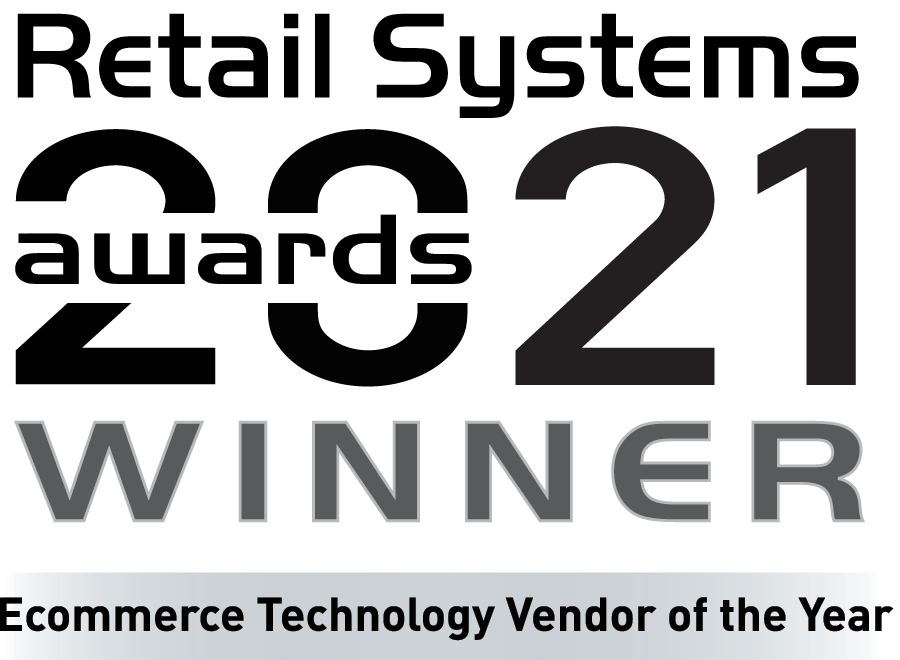Businesses selling on marketplaces see it as an opportunity for unbound e-commerce success. Approximately 63% of product searches worldwide start on Amazon. By listing your products on multiple marketplaces like eBay, TradeMe and Catch, it […]
Businesses selling on marketplaces see it as an opportunity for unbound e-commerce success. Approximately 63% of product searches worldwide start on Amazon. By listing your products on multiple marketplaces like eBay, TradeMe and Catch, it maximises product exposure, drives more sales and helps you to grow a bigger online presence.
Marketplaces are a lifeline for many businesses as customers become more accustomed to exploring online shopping, particularly during the coronavirus pandemic. In fact, it’s actually catalysed the inevitable digital shift.
By selling on the right e-commerce channels and marketplaces you can get valuable insight at first hand into customer shopping behaviour to sell more efficiently, expand your multichannel strategy and even branch out internationally.
But you need the right tools for the job. Whether you’re selling on marketplaces and finding it hard to keep on top of everything, or you've yet to start and not sure how to go about it, marketplace management takes the edge off your challenges and assists in the Triple S: Streamlining Seamless Selling. You’ll triumph in frictionless customer journeys, get more sales and generate positive reviews to grow your brand.
Ready to get going? Here's your ultimate guide for selling on marketplaces.
Why you need to be selling on marketplaces
Marketplaces are traffic heavy. Amazon, eBay and AliExpress collectively get around a huge 8 billion visits a month. By correctly listing your products on these top three global online marketplaces, you’ll get products in front of more eyeballs and increase clicks, conversions and revenue.
Be where your customers are
Shoppers love to browse, compare and look for inspiration. 90% of shoppers go on Amazon to compare prices with an item they’ve selected on an e-commerce website. With new marketplaces such as SurfStitch emerging, customers may end up doing even more digging on these different platforms. This is what you know as deal-seeking behaviour.
If you list your products on multiple marketplaces, your products will hugely benefit from greater exposure.
But listing products for the sake of it and using mediocre product data just won’t work. By working with optimised product data feeds fit for each channel, your products will be listed in the correct categories and appear in relevant products searches. This increases your clicks and conversions.
Let’s say Tim is looking for a “quiet air purifier”, and that’s what you sell. Tim conducts some product searches, actively examining and comparing your product against others to find the best deal. Your ultimate goal is to get Tim onto your product listing page, using high-quality content, to purchase your product. Now if you do this across multiple marketplaces, you’ll appear in relevant search results and the correct categories. With great exposure, Tim may find you even more credible, or perhaps the best deal, and decides to purchase your product. But again, this can only be achieved with optimised product data.
NOTE: The best thing about marketplaces is having the transparency to understand your customers and what they’re looking for. Knowledge is power and having access to this valuable insight while leveraging keyword research tools, it makes it easier for you to optimise your product data content to better match shopper's search terms. This helps you to win clicks over your competitors.
Build your marketplace brand
Selling on marketplaces helps you to create brand awareness, even without an e-commerce website. Your store gains credibility that builds confidence with shoppers and helps to generate reviews. The longer you sell on marketplaces, the better reputation - which helps you retain customers in the long run.
But trust has to be earned. To build trust through your brand, you need to constantly optimise paid display ads to promote your store and back this up, by dominating organic keywords and generating good ratings.
Go direct-to-customer (d-2-c)
One of the benefits of D-2-C is direct interaction with customers. You have better insight and control within the customer journey. By seeing everything at first hand, from the initial shopper awareness stage to the final buying stage, you’ll have the information you need to improve your selling when creating a frictionless shopping journey.
You won’t need to worry about those traditional selling issues anymore. As long as you have the tools and support to manage all the marketing, promotions, sales, support and other logistics, you’ll find D-2-C empowering.
Turn new customers into loyal customers
Because of heavy traffic, it’s easy to acquire new customers. But retaining them might not be as easy.
Subscriptions such as Amazon’s “Subscribe and Save” can help turn those new customers into loyal customers by making it easy for them to buy your product regularly. By having them opt into your product purchase subscription, it becomes easier to build relationships that retain customers without investing in more marketing strategies. It also helps you to schedule orders for the following months – making it convenient for you and your customer.
Expand across different territories
Conquer the world – in an e-commerce context of course.
Once you get the hang of selling on a localised level, you may want to spread your wings. Internationalisation is about knowing the location, the target market, and if your product can succeed in that market. But you have to know your market entry strategy and all the logistics involved. It also means creating new product data feeds for the new target market or adjusting your product data feed to ensure it has all the necessary attributes to get selling e.g. currency.
After that, executing your multi-territory selling on marketplaces won’t seem so difficult. But try not to refer to yourself as “Mr Worldwide” yet, as you’ll have to test what works and be prepared for some common marketplace challenges.
The challenges of selling on marketplaces
Now that you know why it's important to sell on marketplaces, you need to know about the obstacles. These are common issues sellers tend to find but – (spoiler alert) there’s a solution that defeats all!
Launching onto a new market can be risky
It’s always scary trying something new. When you don’t know the outcome, it might seem too risky. But that’s business.
If you haven’t properly planned your strategy, neglected essential software/tools that play an important role in marketplace selling, or even uploaded a poor-quality data feed, there’s a risk of failure in your new marketplace selling. You’re investing money to grow your sales. By neglecting the essentials, you’ll bring in a low ROI and probably won’t achieve those new revenue streams you’ve been dreaming of.
Struggle to control selling
Selling to different shoppers in different marketplaces means a lot of opened Chrome tabs. All the switching and clicking between tabs can actually get you in a “click frenzy” – get it? Nevermind.
Managing different lines of communication, orders, inventory and fulfilment from different places on a daily basis is enough to put anyone off. In fact, 11% of marketers find it daunting to run multi-channel marketing campaigns – yikes! It becomes harder to control and track your selling, which impacts the quality of your customer service.
Having third-party merchants listing your products incorrectly can be a hassle too. Pricing can be an issue with these vendors, as they may not respect your pricing and play about with it to try beat competition. This can actually be quite harmful to your brand, which is why it’s important to take control of your own products. But remember, you need the right tools and support to sell effectively on marketplaces.
No order synchronisation
Orders that are not updated in as close as to real-time as possible can lead to shipping delays.
This is an important part of the frictionless customer journey. If you get this wrong, you’ll be providing a poor customer experience. Your brand could be at risk of stirring a bad reputation with your customers – and they don’t have the patience these days in withholding a poor review.
Poor product data means a poor customer experience
You read that right. Shoppers comparing products rely on up-to-date and accurate information, so you need to ensure you’re providing content-rich information they’ll need to purchase your products, over others. This extends over product titles, product images, product descriptions – and the list goes on. This typically exists in your product data feed.
Poor product data is also responsible for the SEO of your products, having them appear in the wrong product categories or product searches. When your product appears in the wrong category (tech products usually end up being in the Toys and Games section) you’re missing out potential sales, due to the wrong exposure from the wrong target market.
Even seeing a product in the wrong category can make the shopper not fully trust your business. So, it’s important to get it right.
Insufficient inventory management
Ever bought something that ended up being out-of-stock? It’s hard to shake off that disappointing feeling, even with a refund.
If you’re selling on one marketplace or multiple, whether it’s limited edition or your general stock, you need to ensure your inventory is stocked up, and your data is accurate and updated in as close to real-time as possible. You don't want to bite off more than you can chew.
Effective inventory management is critical to your e-commerce selling success. The speed at which products sell when a high number of customers crave them can be unpredictable. Let’s not forget about the toilet roll fiasco (what were we all thinking, right?)
Every marketplace has different requirements
It’s true, there really are different requirements for different marketplaces. Whether it’s general seller requirements or feed requirements, you need to adhere to each channel’s demands. If you don’t fulfil these feed requirements, your products won’t be listed.
Remember there’s not one product data feed that's fit for all channels, so you’ll need to get your copious amount of product data in shape for each channel. It needs to be of high-quality and updated regularly to rank high in product listings. It also needs to be in the right format, under the correct categories and mapped accurately.
Think you can handle all these challenges? It’s not so easy unless you have Marketplace Management.
Why you need marketplace management
It’s the answer to all those challenges we just explained to you (we’re sorry we put you through that).
Having marketplace management is the fast pass to skipping common challenges businesses encounter when selling on a marketplace. And many sellers underestimate just how valuable this solution can be. Here are some ways your business can benefit from a marketplace management solution.
Control over your marketplace selling
You can close all those Chrome tabs now. Marketplace management gets all your orders and inventory from multiple marketplaces into one place, for a clearer picture.
Having multiple marketplaces becomes easy to manage, as typical marketplace management solutions make it easy to retrieve and process your orders directly into its platforms. It helps keep these orders as accurate and as close to real-time as possible. You’ll reap the benefits of streamlining a smooth order process and shipping journey, so you can stay on top of things with little time spent.
By taking control over your marketplace selling, you can also take control over your product listings and ensure they’re listed correctly.
Better quality data for a better customer experience
With marketplace management and product data management on hand, you might just earn the reputation of a data wizard.
Automated syncing of your orders and inventory data takes the burden off your triple-checking habits. Having your data up to date makes it easy for you to trust your marketplace selling. This can help ensure your orders are accurate, helping to meet customer expectations when it comes to distribution.
You can also have better quality data when using a marketplace management solution that offers product data management too. This helps you meet each of the changing marketplace feed requirements (which can be a burden for many) and makes it simple to launch into new marketplaces with a feed suitable for each platform. You can even go cross-border too.
You’ll also get a better insight into your product data, allowing you to better optimise your listings to get your products appearing in the most relevant search queries. Plus, it becomes simpler to update your data, and have accurate insight that you can rely on - especially when you’re running your campaigns.
Avoid overselling
No more disappointing customers. With better quality and handling of your product data, you don't have to worry about inaccurate inventory.
With a marketplace management solution, syncing your inventory data in as close to real-time as possible gives you complete control.
It will help manage your stock buffers, inform you of what items are in stock and prevent you from selling out of stock items. You’ll constantly be aware of your inventory and what you can offer to your market, which leads to a better customer experience.
Less time to market
Got some seasonal limited editions to roll out? Having more control over your business when you sell on a marketplace also gives you a faster way to market your product - whether it’s for brand awareness, selling limited seasonal products or even just leftover excess stock.
You can introduce your product immediately since you have instant access to the marketplace. But make sure you get your products in the right categories to ensure you meet those sales forecasts.
Less risk when launching into a new market
Being able to launch onto marketplaces and build your brand without dedicating a local website makes it easy to feel out marketplaces. You won’t even need to hold stock in a certain country, as you can test out your targeted market before fully jumping in.
The ability to quickly launch into marketplaces and test its effectiveness helps to save time, resources and investment. With the right software, selling on marketplaces can be a good side project to work on, rather than conducting a full-blown operation.
No IT dependency
You know it’s done right when you do it yourself. For every small issue you’ve had to wait on that slowed your strategy down – this is for you.
Marketplace management becomes faster and a seamless experience, because that’s you and your team behind the marketplace.
You’re able to take control of your marketplace selling by quickly making changes to your listings, adjusting pricing, keeping on top of orders and pulling out performance data yourself.
Depending on your solution, you may end being completely independent or you’ll have a bigger portion of control.
Now you know everything about selling on marketplaces
Competition is getting tough on e-commerce channels and marketplaces. It’s always important to ensure you’ve got the right strategy and tools to help sell successfully. If you’re thinking of cutting back on potential investment on marketplace management software, be aware that it’s equivalent to putting a band-aid on a broken leg. It can hold back your progress, do more damage than good and cost the potential of your offsite selling.
If you’re looking for help in overcoming the challenges of selling on marketplaces or want to know how to get started, feel free to contact our experts.










 River Island
River Island